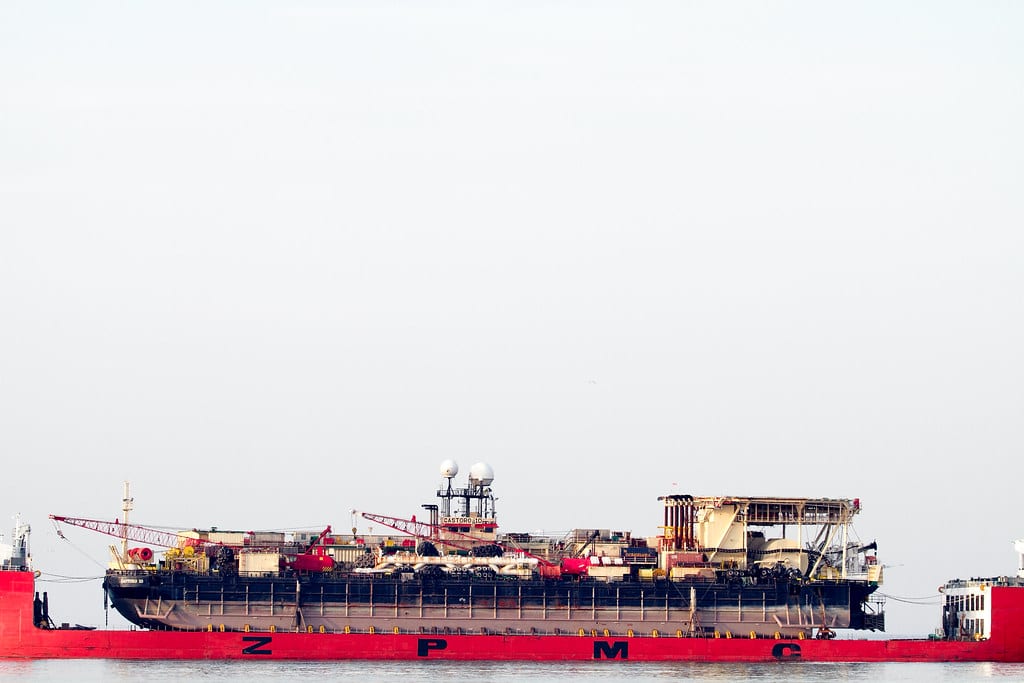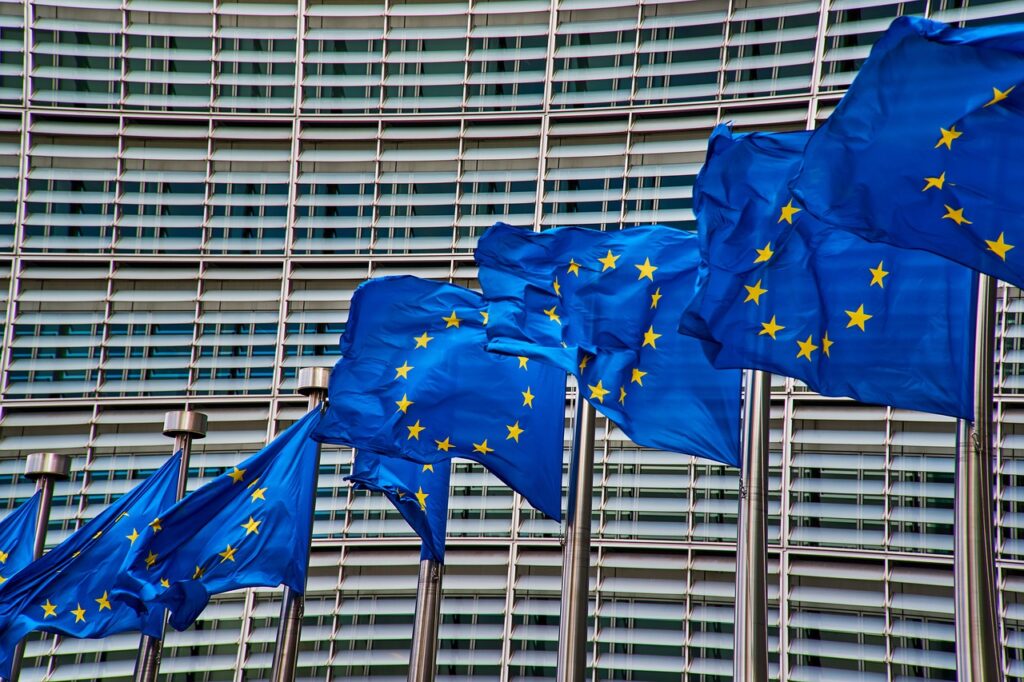On July 14, the European Union (EU) announced a sweeping package of climate proposals that will help the continent cut greenhouse gas emissions by 55 percent by 2030, from a 1990 baseline.
The so-called “Fit for 55” climate package includes a strengthening of the cap-and-trade system, an effective ban on gasoline and diesel vehicle sales by 2035, proposals to cut emissions from buildings, more renewable energy, and a tariff on imports of carbon-intensive goods from countries that aren’t sufficiently regulating emissions, among many other policies.
“Our current fossil fuel economy has reached its limit,” European Commission President Ursula von der Leyen said at a press conference. “We know that we have to move to a new model.”
While some groups have urged more ambitious action, calling the package insufficient to head off climate catastrophe, the Fit for 55 nevertheless represents a dramatic step forward on emissions reductions.
However, the proposals are not yet law, and big European business groups are lining up to water them down, despite adopting official positions supporting climate action, according to a new report by InfluenceMap, a corporate watchdog group. Pressure from big business threatens to weaken the efficacy of the Fit for 55 agenda, the group warns.

Some of the strongest opposition is coming from European transportation companies and their trade groups.
InfluenceMap looked at 216 industry associations that submitted feedback to the European Commission’s public consultations on both the 2030 and 2050 climate targets. A whopping 92 percent of those groups supported a net-zero emissions target for 2050, with very little opposition. But only 36 percent of them supported the interim 55 percent emissions reduction target for 2030. More than half favored weaker targets.
A closer look at the 20 most influential industry groups showed a similar dynamic — near universal support for net-zero targets by mid-century but stiff resistance to the proposed polices aimed at reductions by the end of this decade.
The discrepancy is important, because to achieve net-zero emissions by 2050 would require substantial reductions in emissions in the short- and medium-term.
“The reality is — having a long term climate target doesn’t mean much if there’s no clear pathway to make it happen,” Venetia Roxburgh, author of the report, told DeSmog in an email.
InfluenceMap said two of the most egregious examples are the Airlines for Europe, an aviation trade group, and the European Community Shipowners’ Associations (ECSA), a lobby for the maritime shipping industry. Both of them have “actively lobbied to delay or weaken efforts to include their sectors in EU-level regulations on climate,” InfluenceMap wrote.

For example, Airlines for Europe has lobbied against the EU including long-distance flights in the cap-and-trade system and also against ending a tax break for jet fuel. ECSA also opposed including shipping in the cap-and-trade system.
In response to a request for comment, Airlines for Europe pointed to a position paper in which it voices support for EU climate goals but opposes further taxation. “European airlines are fully committed to decarbonize air transport and accelerate their efforts to make Europe the world’s first carbon neutral continent by 2050,” the paper says. But it opposes the EU’s efforts to end a tax break for jet fuel. “Climate policy regulation in the form of taxes is ecologically and economically counterproductive,” the paper says.
In a statement to DeSmog, Francesco Tanzi, a spokesperson for ECSA, said the group disagrees with the “hurried definition of our lobbying strategy” by InfluenceMap. Tanzi said ECSA prefers a global solution for shipping rather than at the European level — a position noted by InfluenceMap — but “we still welcome the increased climate ambition of the EU,” he said. Tanzi stated that any revenues generated as part of Europe’s cap-and-trade system from shipping should go back to the shipping industry for decarbonization.

Meanwhile, broader cross-sector business lobbying groups, such as BusinessEurope and country-level equivalents — essentially the European equivalent of the U.S. Chamber of Commerce and its affiliates — have members from a variety of sectors, but tend to adopt “lowest common denominator” positions opposing climate policies, InfluenceMap said.
For policies affecting steel, for example, business associations let their steel companies take the lead. For aviation, airline companies take the lead. This dynamic ultimately means that on nearly every issue, broad business associations “align their positions with the least progressive elements of their membership on climate,” the report said.
“We can identify some clear tactics which corporate actors use to try to undermine the EU on climate and environmental issues. They use any and all tactics to delay action: let’s see what others do, let’s push the deadline back, and let’s develop fake solutions,” Silvia Pastorelli, Greenpeace EU climate and energy campaigner, told DeSmog in an email, commenting on the InfluenceMap report. “And when they have nothing left, they say ‘fine — have a law, as long as there are no negative consequences for us if we fail to live up to it.’”
Other industry groups lobbying to weaken the climate proposals include CEMBUREAU (cement), Cefic (chemicals), FuelsEurope (refining), and Eurofer (steel), according to InfluenceMap. But those associations, along with automotive groups, have at least evolved to support certain incentives for zero-carbon technologies for their specific sectors.
A separate report from Reclaim Finance, a climate finance campaign group, found that natural gas industry lobbyists are fighting hard to make sure the EU includes gas under its definition of sustainable fuels. The report found that gas lobbyists held 323 meetings with EU officials between January 2020 and May 2021.
That effort mirrors one underway in the United States, where Congress is considering a clean electricity standard as part of the $3.5 trillion infrastructure bill. The U.S. Chamber of Commerce sent a letter to members of Congress on July 21, in which they advocate for “partial credit” for electricity sources that “feature a reduced (rather than zero) carbon footprint,” a principle aimed at carving out a position for the natural gas industry. The Chamber of Commerce has a years-long track record of promoting fossil fuels.
In Europe, not all industry groups opposed the policies put forward by the EU to slash emissions on this timeframe. Notably, the electric power sector backs the decarbonization effort, with Eurelectric, a utilities trade group, voicing support.
“Direct electrification is a very efficient solution for phasing out fossil fuels and cutting the CO2 emissions. Policymakers must urgently take clear and decisive steps to put clean electricity at the heart of the transformation,” Jean-Bernard Lévy, President of Eurelectric, said in a statement in support of the EU’s Fit for 55 proposal.
But with so many other powerful industries lobbying for special treatment for their sectors, while rhetorically supporting climate aspirations, the risk is that European climate laws will be weakened.
“We see this replicated in many sectors in many parts of the world — companies and industry associations announcing support for net zero by 2050, but also largely trying to carry on business as usual in the short term,” said Venetia Roxburgh of InfluenceMap. “This strategy only delays the action that will inevitably be required to meet net zero.”
Subscribe to our newsletter
Stay up to date with DeSmog news and alerts






